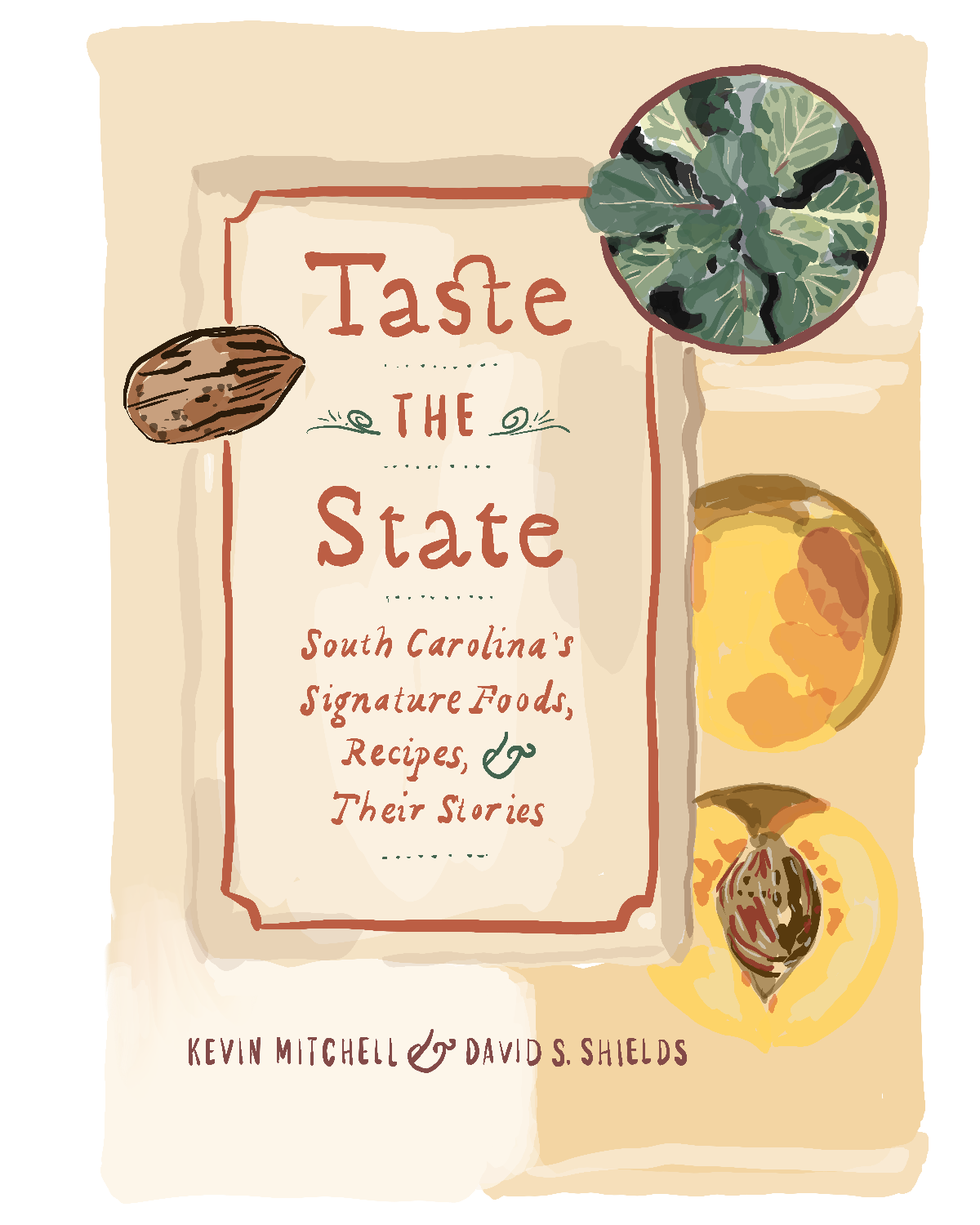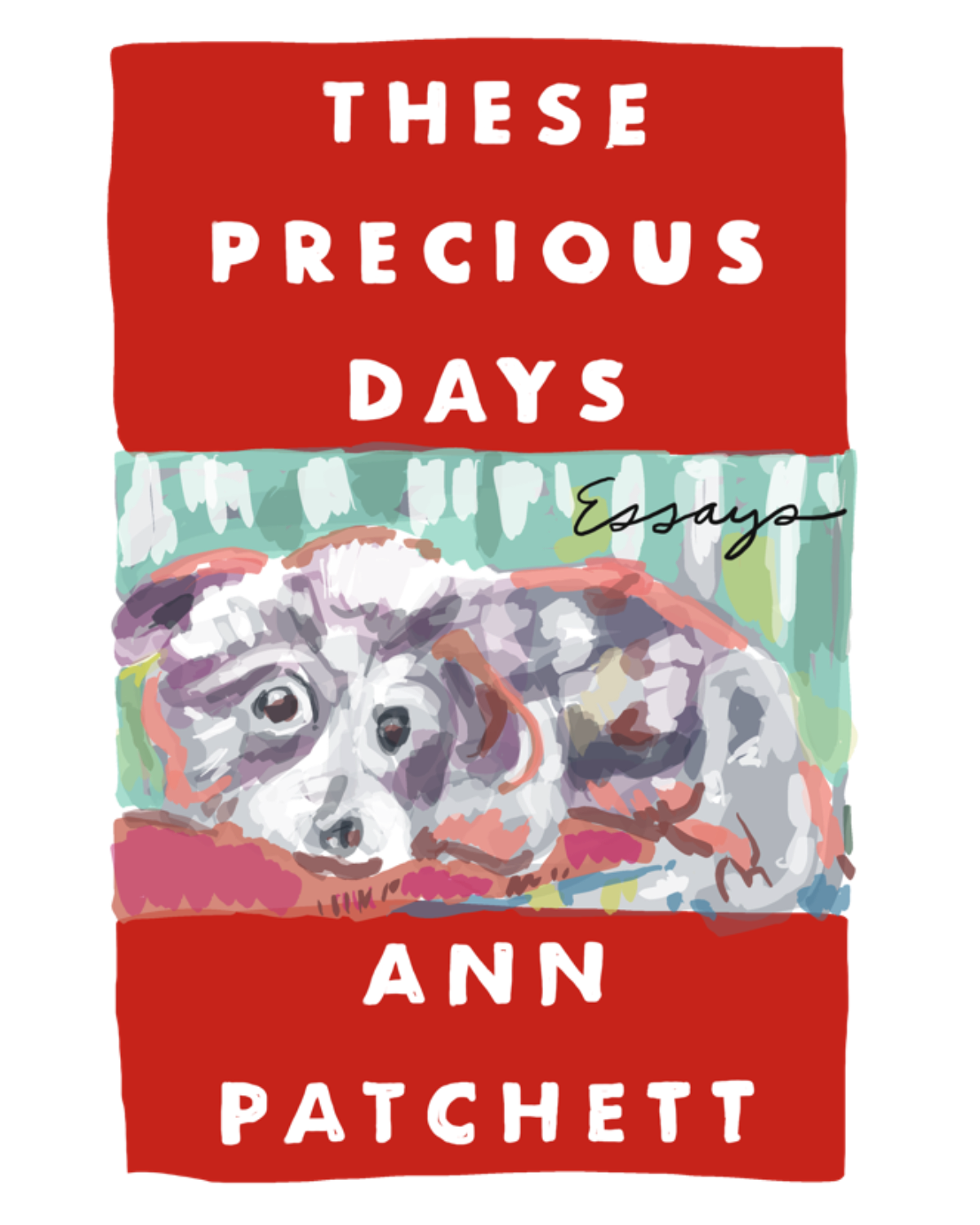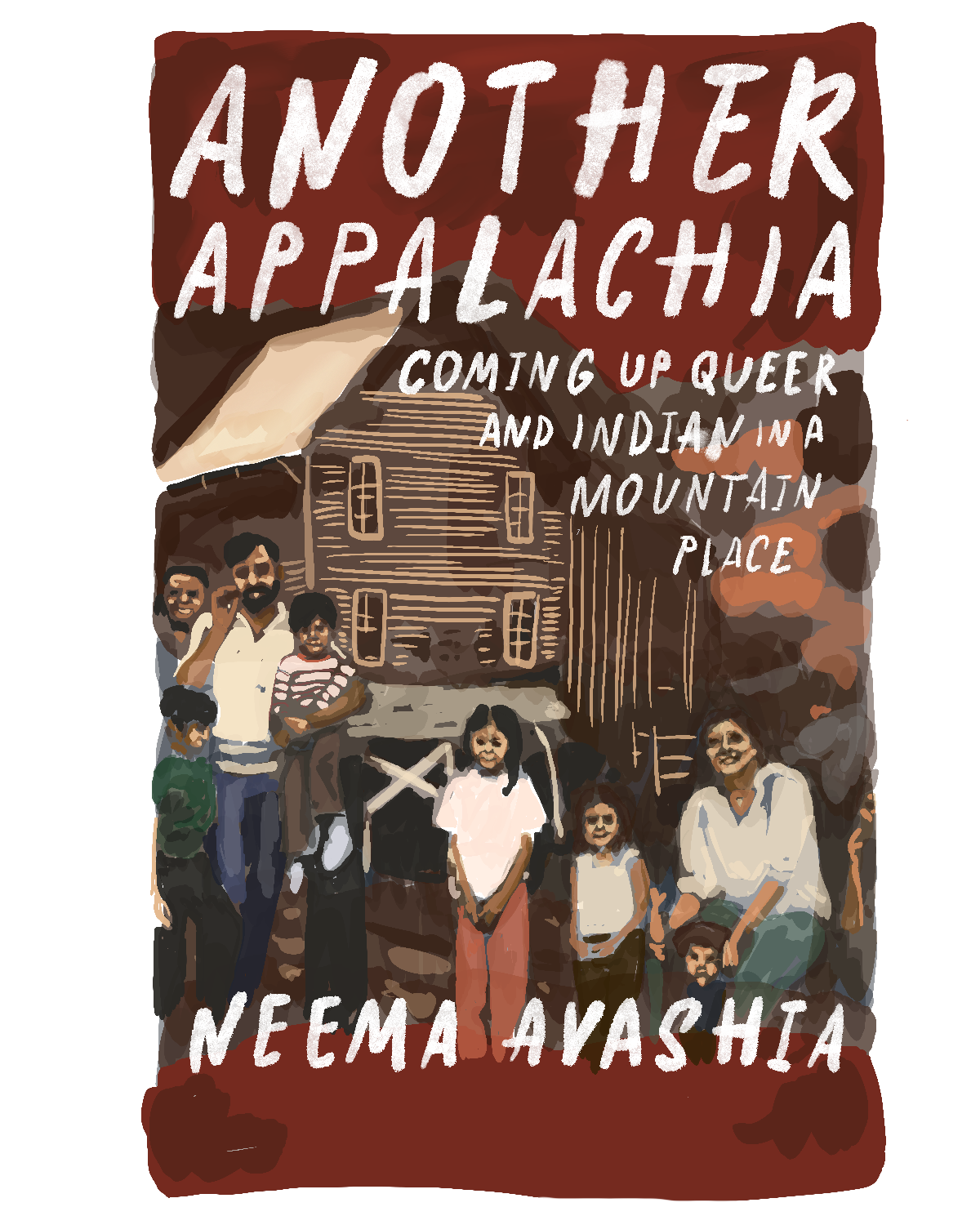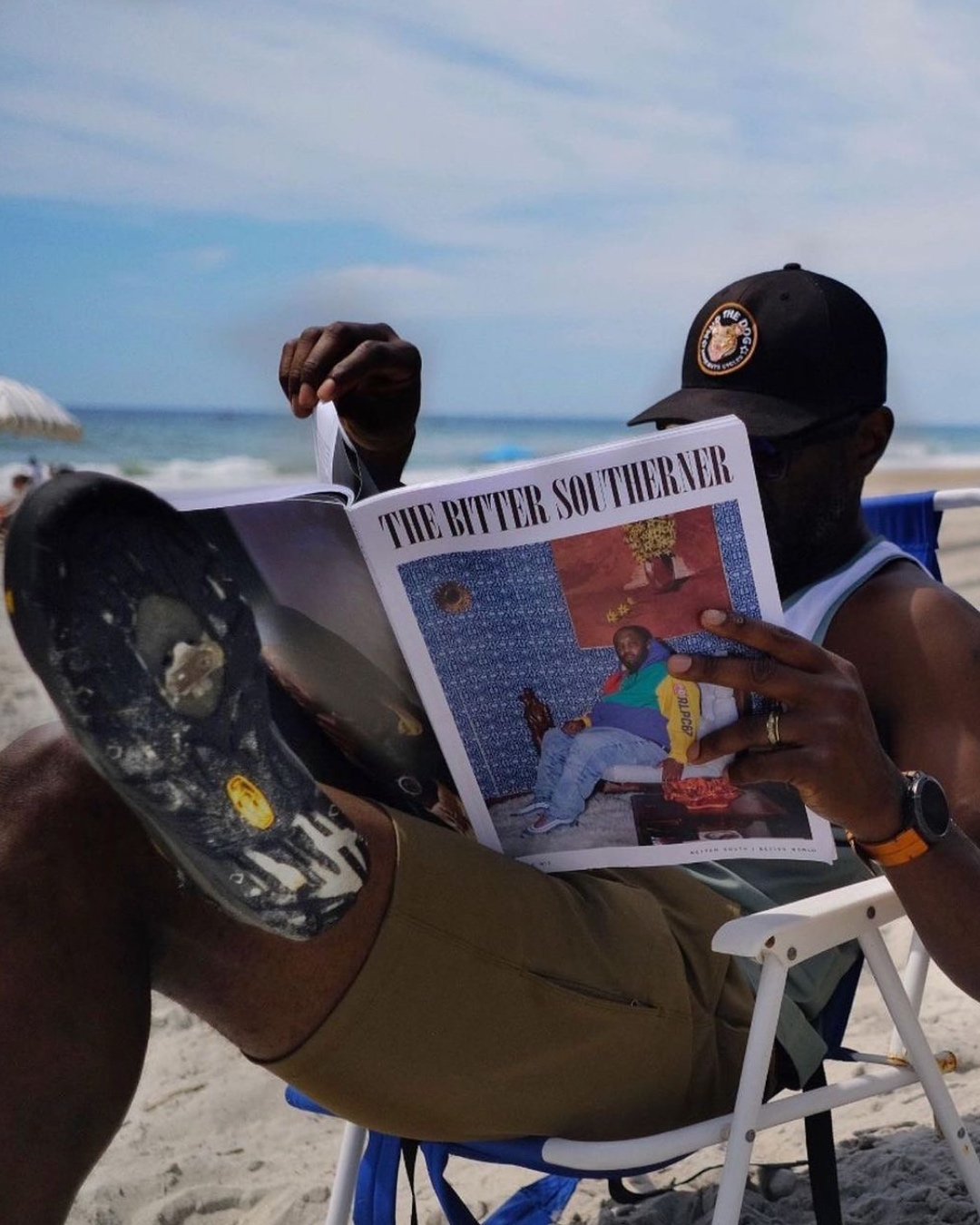From novels to books of poetry to cookbooks, Alison Law writes The Bitter Southerner’s 2022 Summer Reading Roundup.
Words by Alison Law | Illustrations by Martha Park
On day number who-can-even-remember-anymore of the pandemic, I lie on the hardwood floor of my home office with an ice pack tucked beneath my lower back. I hold both arms above my head and furiously text regrets to an author friend whose book launch party is happening across town. As my sciatic nerve telegraphs displeasure between my hip and knee, I have a hard time believing I am the same person who bounded between numerous live book events all over metro Atlanta just a couple of years ago. I have attended or facilitated some virtual author discussions since 2020, but find they are no substitute for the impromptu conversations, laughs, and hugs with fellow readers in book-signing lines. I miss my reading community, but back pain or not, I’m having a hard time picking myself up off the floor and getting back out there.
Fortunately, my love affair with books is more passionate than ever. From this same vantage point, I am surrounded by bookshelves, many packed three deep with hardcovers. At a time when the American Library Association and PEN America report a sharp increase in the number of books being targeted for bans from classrooms and libraries, I think back to my own school days and our annual book fair.
For me, the only thing surpassing the joy of checking out books from the school library was the excitement of flipping through that pulpy two-page catalog and considering the books I wanted to bring home for good. Math never came easy to me, but I added and subtracted multiple times, trying to make the figures equal the greatest number of paperbacks for my book fair budget. That old saw about collecting books and reading books being two separate pastimes? I’m pretty sure it originated for many of us at the school book fair.
This year’s Reading Roundup includes books that anyone would be proud to read and display on their shelves. In addition to the usual fiction and nonfiction selections, I’ve added four poetry collections in case you, like me, often find yourself needing quick doses of perspective. I’ve also noted a few places where I’ve enjoyed the audiobooks. Who needs expensive pedal classes or meditation apps when a good audiobook narrator can prod you into walking another few blocks or soothe you back to sleep in the middle of the night?
Moonlight shines through the office blinds. I slowly awaken on the wet floor, ice pack melted. I get up, grab a book, and get ready for bed.
Hell of a Book
by Jason Mott
An unnamed author finds it increasingly hard to distinguish between past, present, and imaginary while on tour to promote his first book, entitled Hell of a Book. As he tells the reader, he has a condition that causes him to see things other people can’t see, such as a boy named “The Kid” who shows up on various legs of the tour and looks very much like a young man in the news. The condition also makes the author slow to recall certain obvious truths about his life — like the fact that he is a dark-skinned Black man who has written a semi-autobiographical account of his traumatic childhood in rural North Carolina. In this National Book Award-winning novel, Jason Mott flouts the rules and leads us into the maze of an author’s personal life and book. The paperback arrives on June 28. It also makes one hell of a listen, narrated by J.D. Jackson and Ronald Peet. To read more about the book, check out this story Wiley Cash wrote for us last summer.
The Love Songs of W.E.B. Du Bois
by Honorée Fanonne Jeffers
Inspired by her own family history, Honorée Fanonne Jeffers writes the fictional saga of one Georgia family. The epigraph explains both the book’s title and structure; W.E.B. Du Bois wrote of the “Sorrow Songs” that enslaved people in the South passed down, even if their future generations were unaware of this inheritance. Each song or section alternates between timelines and family members — from a boy named Micco who roams the land between the Ocmulgee and Ogeechee rivers in the 1760s, to his descendant Ailey Pearl Garfield in the present day. As Ailey confronts painful events in her life, she starts sorting through what she’s inherited from Native American and Black family members who struggled with the horrors of historical racism and white supremacy. This Oprah’s Book Club pick just came out in paperback.
Perfect Black
by Crystal Wilkinson
In this coming-of-age collection, Kentucky’s poet laureate plumbs the topography, agriculture, and culture of her family and home state. Wilkinson meditates on her childhood as a daughter to a mostly absent mother suffering from mental illness. She comforts her younger self, a girl who feels more water witch than beloved when baptized in the creek behind her grandparents’ rural church. She reclaims her “country” upbringing when taking back up memories of the “warm burnt sienna” of both her granddaddy’s skin and her family’s tobacco drying in the barn. Perfect Black’s poetic epigenetics are accompanied by illustrations from Wilkinson’s partner, Ronald W. Davis. Words and pictures vividly describe the internal and external landscapes of becoming.
Taste the State: South Carolina’s Signature Foods, Recipes, and Their Stories
by Kevin Mitchell and David S. Shields
Two respected teachers and Southern food preservationists collaborated on this blend of signature ingredients, dishes, and histories from the Palmetto State. Kevin Mitchell became the first African American chef instructor at the Culinary Institute of Charleston in 2008. He also earned a master's degree in Southern studies from the University of Mississippi, with a focus on Southern foodways, the preservation of Southern ingredients, and African American contributions to the culinary arts. David Shields is a University of South Carolina professor and chair of the Carolina Gold Rice Foundation, a nonprofit committed to the sustainable restoration and preservation of Carolina Gold rice and other grains. More than 80 alphabetically arranged entries — from the Palmetto variety of asparagus to yaupon tea — showcase some of the state’s most historical or traditional recipes.
When Two Feathers Fell From the Sky
by Margaret Verble
In her third novel, Margaret Verble brilliantly imagines Nashville in the summer of 1926, when laws banned alcohol and legalized segregation. A young Cherokee woman named Two Feathers and her horse, Ocher, entertain crowds by diving off a three-story platform into the water below. “Two” and a cast of characters who defy the boundaries of 1920s Southern society must leap in to solve a mystery when strange things start happening in this high-flying historical drama. Verble, an enrolled citizen of the Cherokee Nation of Oklahoma, grew up in Nashville. Through her research for When Two Feathers Fell From the Sky, she discovered that horse diving had been an attraction at the Glendale Park Zoo.
These Precious Days
by Ann Patchett
Thank goodness for Snoopy! Ann Patchett writes that Charlie Brown’s beagle, who sat atop his dog house typing about a dark and stormy night, was the first character to inspire her to be a writer. And thank goodness for Sooki Raphael! This licensed professional pilot, amateur yogi, and color-obsessed painter helped Patchett practice the idea of living our best lives at the beginning of the COVID-19 pandemic. In These Precious Days, the bestselling novelist and co-owner of Parnassus Books in Nashville expresses gratitude for many people who have influenced her life. This collection of personal essays includes wisdom inherited from her birth father and two stepfathers, gained while letting go of items around her house, and acquired outside the classroom of a prestigious creative writing program. Step aside, Tom Hanks! While he may have narrated Patchett’s novel The Dutch House, she masterfully narrates this audiobook.
Living Queer History: Remembrance and Belonging in a Southern City
by Gregory Samantha Rosenthal
When Rosenthal moved to Roanoke, Virginia, in 2015, they were a newly out queer person who had never lived south of New York’s Verrazzano-Narrows Bridge. In this small Southern city on the edge of Appalachia, Rosenthal discovered a “hidden mecca” that had welcomed members of the LGBTQ+ community for at least 50 years. Living Queer History challenges the “metronormative” belief that safe spaces for queer people exist only in large cities, mostly outside the South. As they map Roanoke’s history of LGBTQ+ inclusivity, Rosenthal shares their personal journey from cisgender queer to transgender woman.
South to America: A Journey Below the Mason-Dixon to Understand the Soul of a Nation
by Imani Perry
Scholar Imani Perry travels through the American South to reevaluate her complicated relationship with the place she once called home. The Birmingham, Alabama, native is a professor of African American studies at Princeton University. Although the pandemic thwarted some of her travel and writing plans, Perry covers a lot of terrain, beginning at Harpers Ferry, the site of John Brown’s failed 1859 raid, and concluding in the southern islands of the Bahamas, Haiti, and Cuba, which have long contributed to the South’s economy and culture. Perry’s inspiration for this project was South to a Very Old Place, Albert Murray’s 1971 memoir and social history of growing up in Depression-era Alabama. Learn more in senior writer Josina Guess’ story “Alabama Dreaming With Imani Perry”.
Headless John the Baptist Hitchhiking: Poems
by C.T. Salazar
A young man who once sought peace and acceptance in organized religion and wandered in the Delta seeking the American Dream challenges these concepts later in his adult life. Headless John the Baptist Hitchhiking reexamines religious relics and national and state iconography, questioning the sacrifices made on behalf of both church and state. C.T. Salazar is a Latinx poet and librarian from Mississippi who received the state’s 2020 Institute of Arts and Letters Award in poetry. Yet he’s said in at least one interview that he had a hard time calling himself a Southerner until he studied the work of Arkansas poet C.D. Wright. The author of three chapbooks, this full-length collection contains poems written over the course of seven years.
Gut: Poems
by J. Bailey Hutchinson
Mythological meets Southern gothic in this debut poetry collection from J. Bailey Hutchinson. In the book, we are witness to a mother’s love encircling a raging 8-year-old who has just accidentally wounded her. The poet prays to the natural forces of a mighty “Miss” to curtail the supernatural visits from her deceased grandmother. Gut won the 2022 Miller Williams Poetry Prize. In the book’s preface, series editor Patricia Smith calls Hutchinson “a Southern girl who sees no need to pound in that fact with a narrative hammer.” Anthony Blake, a classmate and friend of Hutchinson's who saw many of the poems develop over the years, designed the arresting book cover, which features the artwork of Polish artist Aleksandra Waliszewska.
Another Appalachia: Coming Up Queer and Indian in a Mountain Place
by Neema Avashia
Neema Avashia begins this book of personal essays by directing us to its geographic and emotional epicenter: Cross Lanes, West Virginia. “Why West Virginia?” is a question this daughter of Indian immigrants fielded numerous times while growing up in Cross Lanes. Writing about it now in “Chemical Bonds,” Avashia explains that her parents moved to the state of her birth when her father took a job at a chemical plant. A doctor of occupational medicine, he often gave free physicals and flu shots to people in town who couldn’t afford a visit with their own physician. This predisposition to care for one’s neighbors pervades the author’s recollections. A queer Asian American teacher now living in Boston, Avashia beautifully writes about basketball and belonging in one of the collection’s essays, “Be Like Wilt,” which first appeared in 2019 as part of The Bitter Southerner’s Folklore Project.
The Last Suspicious Holdout
by Ladee Hubbard
“There comes a time when a mother has to accept that the promise of sugary sweets has lost its ability to soothe all grief.” This and other hard-earned observations whisper then treble through The Last Suspicious Holdout. The sentence comes from the first story, “Flip Lady,” about a Black mother who originally made homemade paper cup popsicles to size up her son’s friends and keep them all safe in her backyard. Ladee Hubbard’s collection of 13 interlocking short stories explores relationships in a Black neighborhood from the late 1980s to the eve of President Barack Obama’s inauguration. Hubbard currently lives in New Orleans. Her first novel, The Talented Ribkins, received the 2017 Ernest J. Gaines Award for Literary Excellence.
Here Lies
by Olivia Clare Friedman
More macabre than Southern gothic, and more alarming than dystopian fiction, is the new genre of climate fiction, or the weirdly charming shortener “cli fi.” Here Lies thrills in this new category, a book set in an alternate Louisiana in the year 2042. Climate change has closed graveyards and banned burials. Cremated remains become government property unless relatives or loved ones claim them. These circumstances fill Alma Guidry with regret, compelling her to connect with a local band of outsiders in a quest to honor her mother’s final wishes. This moving story is the first novel by Olivia Clare Friedman, who teaches creative writing at the University of Southern Mississippi.
Korean American: Food That Tastes Like Home
by Eric Kim
While home looked like Atlanta for New York Times food writer Eric Kim, it often tasted like his parents’ home country of Korea. His mother, Jean, prepared savory soups and stews, fall-apart-tender meat, and kimchi fried rice for the family. Kim spent a year of the COVID-19 pandemic writing personal stories and cooking alongside his mother in her Georgia kitchen. The result is Korean American, a cookbook fusion of her Korean sohn mat (translated literally to “hand taste,” meaning one’s signature touch and the perfect way to express why one’s food never tastes as good as the originator’s recipe) and the techniques that he’s acquired as an American food writer. Vibrant photographs by Jenny Huang accompany recipes for dishes like Gochugaru Shrimp and Roasted Seaweed Grits and Pan-Seared Rib Eye With Gochujang Butter.
Ancestor Trouble: A Reckoning and a Reconciliation
by Maud Newton
Maud Newton borrowed her pen name from a great-aunt who was rumored to have trained as an architect and barked out exacting orders during the construction of her Mississippi home. After uncovering the events leading up to her great-grandfather Charley’s dying in a Texas mental hospital at age 48, the author purchased an inscribed headstone to replace his grave marker. Ancestor Trouble details how one woman finds kinship with her long-lost relatives while her relationships with her father and mother are disintegrating. Newton started blogging in 2002 and later parlayed her adventures down the genealogy rabbit hole into a cover story for Harper’s Magazine, the seed for this book. Readers who have bought a DNA ancestry kit or wondered if those tidbits of family folklore were really true will follow these stories with relish.
Thresh & Hold
by Marlanda Dekine
Many will agree that poems are delights for the ears. Thresh & Hold reminds readers that line and verse can also be indulgences for the eyes. One only needs to spend a few minutes drifting down the page of Marlanda Dekine’s introductory poem, “The Black River,” to understand this idea. We register the patois of their family members, going back to their Gullah-Geechee roots. We hear the hallelujahs and amens of the church ladies at Bethel A.M.E. Dekine is the winner of the 2021 New Southern Voices Poetry Prize. They say they are obsessed with “ancestry, memory, and the process of staying within one's own body.”
Memphis
by Tara M. Stringfellow
This debut novel may enchant readers with its descriptions of a stately Southern home. The patriarch lovingly selected and placed each stone of the foundation, and honeysuckle and ivy now drape the front porch. But before 10-year-old Joan can charcoal the place into her sketchbook, the front door opens, unleashing memories that transform this from a place of refuge into a place of danger. And all of that happens in just the first short chapter! Memphis is the backdrop of the North family’s story, narrated across nonlinear chapters by three generations of women. The Tennessee city is also Tara Stringfellow’s home, a place she returned to and wrote about because of its rich Civil Rights history and her own family’s role in that history.
Gathering Blossoms Under Fire: The Journals of Alice Walker, 1965–2000
by Alice Walker (author), Valerie Boyd (editor)
The April release of Gathering Blossoms Under Fire marked a bittersweet milestone. Valerie Boyd, the book’s editor and a senior consulting editor for The Bitter Southerner, died in February. (Boyd honored me in 2019 by asking me to join her in planning Walker’s 75th birthday celebration in her hometown of Eatonton, Georgia.) The esteem and affection that connected Boyd and Walker manifest in this edited collection of journal entries. Selected entries begin in 1965, when Walker was a 21-year-old student at Sarah Lawrence College, and cover more than five decades of personal events, like her marriage to a white Jewish lawyer in 1960s Mississippi, artistic achievements like winning the Pulitzer Prize, and drawing ire at numerous points for her work and activism. The final entry, dated February 12, 2021, speaks to the duality of a writer recording thoughts in her journals while also trying to keep track of the people and events living in the realm of her imagination. As someone who has spent the better part of her life writing, Walker is more than comfortable straddling both worlds.
The Homewreckers
by Mary Kay Andrews
This year marks the 30th fiction-writing anniversary of Mary Kay Andrews, a former newspaper reporter turned mystery novelist who’s now best known as the “Queen of the Beach Read.” Her latest heartfelt and humorous novel, The Homewreckers, takes place in Savannah. The book’s house-flipping protagonist, Hattie Kavanaugh, gets the opportunity to star in a home renovation show, but only if she can fix up her relationship with the show’s male lead. Both the setting and subject matter are familiar territory for Andrews. In addition to writing, she divides her time between junking in Atlanta and restoring old homes on the Georgia coast.
I Kissed Shara Wheeler
by Casey McQuiston
The author of Red, White & Royal Blue and One Last Stop brings their whip-smart rom-com sensibility to the young adult genre. Casey McQuiston wanted to write a YA book like the ones they read in high school and the soapy teen teledramas of the early 2000s. Instead of a meet-cute at a royal wedding or on the New York City subway, this new romance happens at a conservative religious school in central Alabama. Nothing will be the same when Chloe Green kisses her rival Shara Wheeler, the prom queen and principal’s daughter. A Louisiana native, McQuiston says they wrote I Kissed Shara Wheeler for young readers who might see themselves in these characters who are “coming of age queer in the Bible Belt.”
Alison Law is a writer and communications professional living in Atlanta. An unapologetic book pusher and author enabler, she has interviewed more than 100 writers in Zoom rooms and recording studios and before live audiences at venues such as the Jimmy Carter Presidential Library, the Atlanta History Center, and the Margaret Mitchell House. She hosted the “Literary Atlanta” podcast from 2017 to 2019 and served in programming and media relations roles for the Decatur Book Festival.
Martha Park is a writer and illustrator from Memphis, Tennessee. Her work appears in Guernica, Granta, Ecotone, The Rumpus, and elsewhere. She is currently at work on a collection of essays about faith and the South.




























